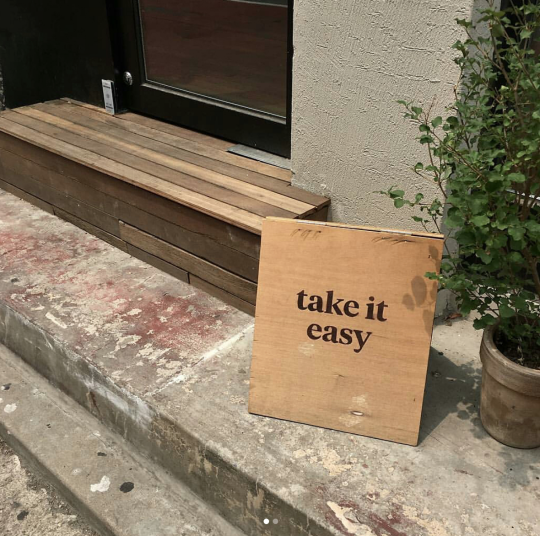Photo

The lavender fields in Valensole France. - UnderdevelopedKale
163 notes
·
View notes
Photo

It’s the kindest heart beating This side of the blue
408 notes
·
View notes
Text
A Scantily Researched and Mostly Opinionated, but Empirical Analysis on The American Education System
I can almost hear the eyes of baby boomers hitting the back of their eye canals as they roll their eyes at yet another millennial’s blog post complaining about the system our predecessors have established (this is an exaggeration - your eyeballs cannot reach the backside of your head. there is a thin layer that makes up the outer white area of your eye that folds over and comes back towards the iris, which, by the way, is the reason a contact lens will never be able to get stuck in the back of your eye, and this layer does not allow for 360 degree eye rolling).
Studies have shown that 21st century American teenagers are, simply put, chronically sad. It’s a very interesting study - in summation, a sample size of about 800 kids (ranging 8th-12th grade) were given buzzers, and when the buzzer buzzed throughout the day, the kids reported happiness levels along with factors that contribute to this mood. The data revealed that kids were less happy in the morning, peaking with happiness around lunch time, and below average happiness during school hours. Do these comprehensive results surprise us? Personnellement, non! How could it? School is the facilitation of a hypercompetitive environment in the name of creating human capital. After all, the school system achieves one goal: curating a good work ethic so that these humans, when their times have come, are excellent tools to use to better society - human capital, one more time for you with the hearing aids, Gerald.
What do we do with this data? Well, the most prominent question at the front of my mind is: how do we eliminate the association of negative feelings with schooling? What factors led us here? For starters, let’s first acknowledge that longer school days are definitely not the answer. I love learning, and there are many young people like me. In the summer, the absence of school does not make me want to stop learning - in fact, now I have even more control to learn about topics that I want at my control (thank you computers and google). The desire to learn is crucial. Is there correlation between increasing the time in a forced activity and liking the said forced activity? No. Over the course of the past three to four decades, time spent in school and time spent on homework have increased dramatically. Homegirl cannot hit you with the sources right now, but I can confidently tell you that there are days that I came home from school and did not interrupt my homework, with the exceptions of using the bathroom and eating and showering, until the sun was down. At the rate at which we are increasing school hours, I may very well have to enroll my child in 9 hour school days soon [did you know there is a man advocating for a year-round school policy implementation? What a dick.]).
Longer school days are not the answer. How many studies do you need to hear from before you understand that productivity is halted, augmented, eradicated when not allowed enough freedom? If you went to work for a full 9pm-5pm day and came home and did four hours of work, how long would you last?
Lastly, let’s talk about college. The Obama administration boasted the stats stating that more young people in the 21st century are taking advanced (AP, IB, Honors, etc.) courses, passing the courses, and receiving college credit for these courses than ever before. Consequently, these young people in the 21st century are applying to, attending, and graduating college at an unprecedented rate. However, what we are not boasting is the fact that, though we are producing more high-achieving high school graduates, we are not accommodating this rising number in universities’ admissions. College is a sanctioned game, and the sanctions (financial status, participation in extracurriculars, etc.) are the most limiting factor that prevents young people from desiring to pursue higher education. Let’s paint a picture: in fall 2014, we have 100 students about to enter their senior year of high school and take AP US History. Only 70 of the students pass the exam and receive extra credit. In theory, a 70% pass rate in terms of an AP exam is excellent (nationwide pass rates are usually in the 40%’s). Those 70 students all want to go to Harvard, but Harvard only has 50 spots, so they can’t accept all of our excellent students, but we are are certainly still proud of our pass rate. Now, it is fall 2018, and with the help of adderall, caffeine, and a crushing fear of becoming obsolete if college is out of reach, 100 out of 100 students score a 5 on the APUSH exam - however, Harvard still only has 50 spots. And that, theoretically but most likely, is why students have become increasingly less hopeful of their future prospects. The hyper competitive environment that the education system has cultivated has successfully produced the number of potential-bearing, well-rounded, eloquent, sophisticated, and educated students, and this is supported by raw data. However, what we are failing to address is the fact that we are not making room for the influx of these smarter students, leaving those 50 spots at Harvard to be filled with students that can a) afford the steep tuition prices with or without the financial aid awarded (and of course, we can see how this can disadvantage low-income students who very well match the intelligence of other higher income students) or b) students who have had the ability to diversify their portfolio (which again, disadvantages students who had to supplement schoolwork with work-work in order to make an income and support a family or themselves - these students did not have time to partake in clubs, sports, unpaid volunteer work, etc. and maintain the hours of schoolwork aforementioned). Past allllll of that, we have students who cannot afford, with limited time and money, to pay the high prices of SAT, ACT, AP, preparation courses - an example of another disadvantage. The school system is not a level playing field. These are the odds stacked against 21st century American students: if you have the time, money, and resources, you have a path that leads to college undoubtedly, if you choose it. But for those who do not, you may have the suave and sophisticated manner, the intellect and the grades to show it, but your path is much more murky, filled with obstacles, and unfortunately, sometimes unattainable.
So is really all that difficult to see why our generation is the quarter-life-crisis, existentialist, depression and anxiety-ridden, medicated, activist and advocating generation?
0 notes
Photo

“I firmly believe in small gestures: pay for their coffee, hold the door for strangers, over tip, smile or try to be kind even when you don’t feel like it, pay compliments, chase the kid’s runaway ball down the sidewalk and throw it back to him, try to be larger than you are— particularly when it’s difficult. People do notice, people appreciate. I appreciate it when it’s done for me. Small gestures can be an effort, or actually go against our grain, but the irony is that almost every time you make them, you feel better about yourself. For a moment life suddenly feels lighter” ✨ Wise and truthful words by Jonathan Carroll. The best part of going out of your way to make someone else happy, whether in a grand way or on the smallest and most fleeting level, is that the energy you’ve put out comes right back to you. This energy works much faster than karma, you don’t have to wait or search for its effect. You feel it instantly, warming your soul from the inside out.
If you want to feel joy and happiness, try giving it to someone else. 💛
231 notes
·
View notes
Photo

Check out our Nature Blog - http://ift.tt/2x0nwBr
263 notes
·
View notes












